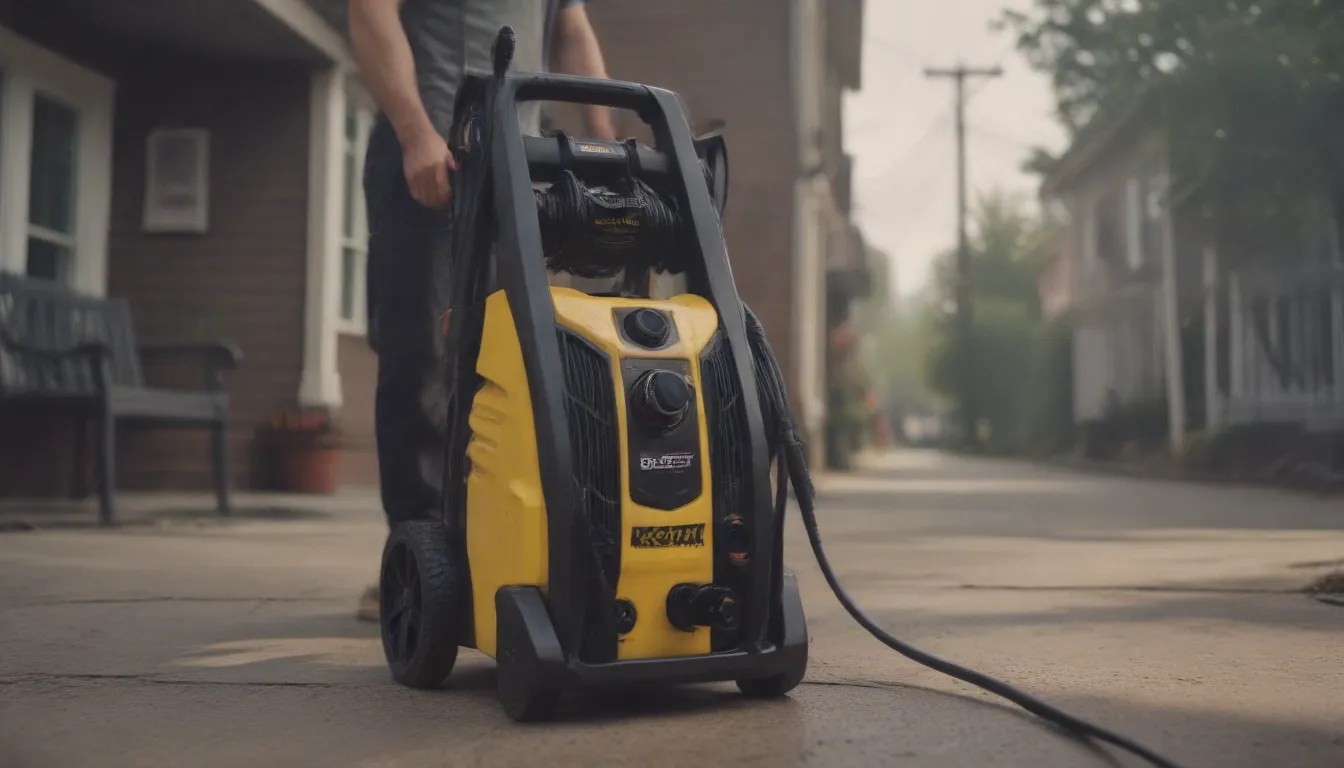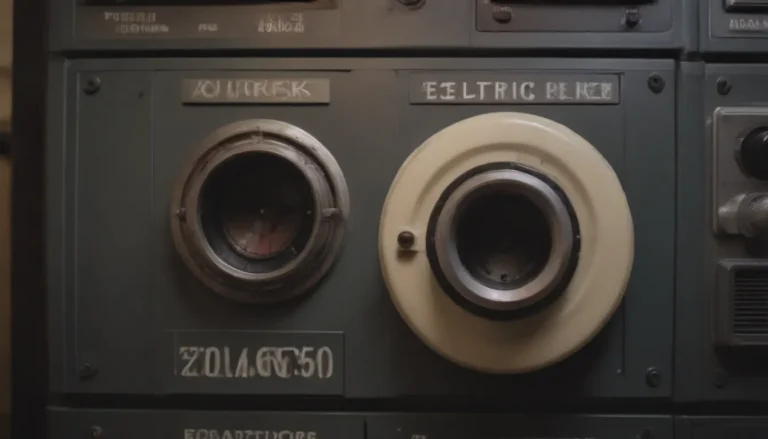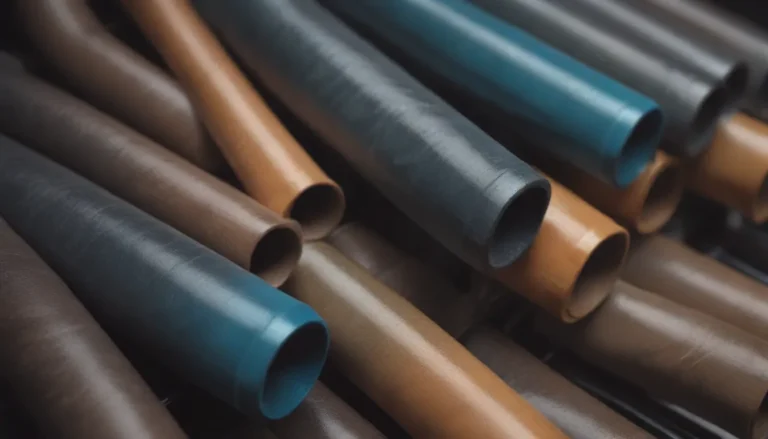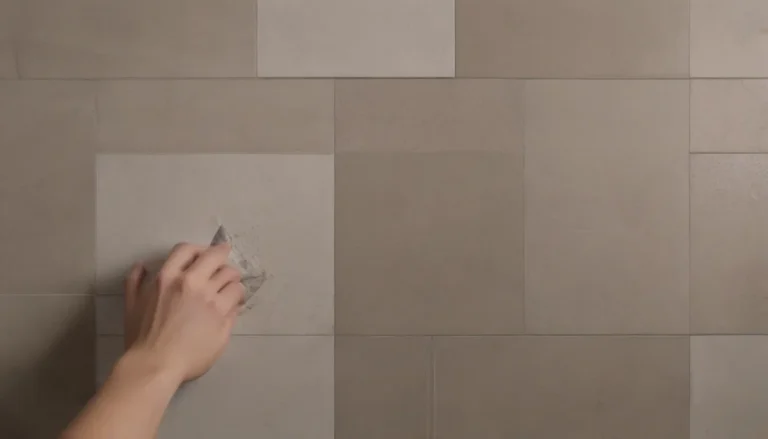Electric vs. Gas Pressure Washers: A Comprehensive Guide

Are you in the market for a pressure washer but unsure whether to go with an electric or gas model? Pressure washers are fantastic tools for cleaning various surfaces around the home like decks, fences, driveways, and more. However, when it comes to choosing between electric and gas pressure washers, there are some key differences to consider to ensure you select the right one for your needs.
In this in-depth guide, we will explore the major differences between electric and gas pressure washers, including their ease of use, environmental impact, care and cleaning requirements, durability and maintenance, performance, cost, and lifespan. By the end of this article, you will have a clearer understanding of which type of pressure washer is best suited for your specific projects.
Electric vs. Gas Pressure Washers: Major Differences
When comparing electric and gas pressure washers, there are several key factors to consider that set them apart. Here are some major differences between the two types of pressure washers:
-
Electric Pressure Washers:
- Easier to use for beginners
- Environmentally friendly and relatively quiet operation
- Requires simple maintenance and safe storage
- Less durable than gas models
- Light-duty cleaning power for minor cleaning
- More affordable than gas models
- Lasts about three to five years
-
Gas Pressure Washers:
- High power output can be difficult to control
- Gas emissions harm the environment and operation can be loud
- Requires regular maintenance and upkeep
- Heavy-duty cleaning power for tough jobs
- More costly than electric models
- Lasts about five to seven years
When deciding between electric and gas pressure washers, consider your level of experience, the type of projects you will be tackling, and how much maintenance you are willing to perform.
Ease of Use
In terms of ease of use, electric pressure washers are generally more beginner-friendly due to their lower power output and simple setup process.
Electric Pressure Washer
Electric pressure washers are designed for DIYers and those who may not need the heavy-duty power of a gas-powered machine. With lower power output, there is less risk of damage or accidental injury. Electric pressure washers do not require oil or gas for operation, making them easier to set up and use.
Gas Pressure Washer
Gas pressure washers, on the other hand, require gas and oil to operate efficiently. The user must regularly check and top up these fluids to ensure proper functioning. Gas pressure washers also tend to be more difficult to control due to their powerful output.
- Best for Ease of Use: Electric Pressure Washer
Environmental Impact
When it comes to the environmental impact of pressure washers, electric models are a more eco-friendly choice compared to gas pressure washers.
Electric Pressure Washer
Electric pressure washers draw power from the home’s electricity supply, resulting in a cleaner energy source. They are relatively quiet during operation compared to gas pressure washers.
Gas Pressure Washer
Gas pressure washers burn gasoline, releasing harmful emissions into the air. These models are significantly louder during operation, adding to their environmental impact.
- Best for Environmental Impact: Electric Pressure Washer
Care and Cleaning
Both electric and gas pressure washers require regular cleaning and maintenance to ensure optimal performance and longevity.
Electric Pressure Washer
Electric pressure washers are relatively easy to clean and maintain. After each use, rinse the body of the tool and clean the hose and spray nozzles. Proper storage in a protected space like a shed or garage is essential.
Gas Pressure Washer
Gas pressure washers, despite their heavier weight, are also easy to clean. Rinse the exterior of the pressure washer, clean the hose and nozzles thoroughly, and store the tool in a safe location.
- Best for Care and Cleaning: Tie
Durability and Maintenance
While electric pressure washers require less maintenance, gas pressure washers are more durable and have a longer lifespan.
Electric Pressure Washer
Electric pressure washers are perfect for beginners as they are low maintenance. Aside from regular cleaning and proper storage, occasional pump lubrication is the only maintenance required. However, these models are less durable than gas pressure washers.
Gas Pressure Washer
Gas pressure washers need regular maintenance including fluid top-ups, filter replacements, and minor repairs. With the proper care, gas pressure washers can outlast electric models due to their more robust construction.
- Best for Durability and Maintenance: Tie
Performance
When it comes to power and performance, gas pressure washers have the upper hand over electric models.
Electric Pressure Washer
Electric pressure washers typically have a lower psi range, making them suitable for lighter cleaning tasks. While safe for beginners, they may not be as effective for tough jobs.
Gas Pressure Washer
Gas pressure washers are known for their high-power output, ranging from 2,500 to 4,000 psi. These models are ideal for heavy-duty cleaning tasks and can tackle stubborn grime with ease.
- Best for Performance: Gas Pressure Washer
Cost
Electric pressure washers are generally more affordable than gas models, making them a budget-friendly option for many homeowners.
Electric Pressure Washer
With a light-duty design, electric pressure washers are cost-effective, ranging from $90 to $180 on average. They offer a wallet-friendly solution for minor cleaning tasks around the home.
Gas Pressure Washer
Gas pressure washers are pricier due to their power, durability, and longevity. Prices range from $200 to $500, making them a more significant investment compared to electric models.
- Best for Cost: Electric Pressure Washer
Lifespan
In terms of lifespan, gas pressure washers outlast electric models, making them a worthy investment for those seeking long-term use.
Electric Pressure Washer
Electric pressure washers typically last about three to five years, depending on care and maintenance. Their light-duty construction may lead to earlier replacements.
Gas Pressure Washer
Gas pressure washers can last five to seven years or even longer with proper maintenance. Their durable design ensures longevity and reliability for tough cleaning tasks.
- Best for Lifespan: Gas Pressure Washer
The Verdict
In conclusion, electric pressure washers are ideal for beginners, light-duty projects, and those looking for an affordable and easy-to-use cleaning tool. On the other hand, gas pressure washers offer superior power, durability, and longevity, making them the top choice for heavy-duty cleaning tasks.
Consider your specific needs, projects, and skill level when choosing between electric and gas pressure washers to ensure you select the right tool for your home.
Top Brands
When shopping for a pressure washer, consider reputable brands that offer quality products. Some top brands to explore include:
- Karcher
- Greenworks
- DeWalt
By researching and comparing different brands, you can find a pressure washer that meets your needs and budget.
In conclusion, choosing between electric and gas pressure washers ultimately depends on your specific requirements and preferences. Whether you opt for the ease of use and affordability of an electric model or the power and durability of a gas model, both types of pressure washers have their unique benefits. Take the time to evaluate your cleaning needs and select the pressure washer that best suits your projects and skill level. With the right tool in hand, you can tackle tough cleaning tasks with ease and efficiency.
Sources:
– Kärcher
– Fink, Daniel and Jan Mayes. Too Loud! Non-Occupational Noise Exposure Causes Hearing Loss. POMA, Proceedings of Meetings on Acoustics, vol. 43, no. 1, 2021. doi:10.1121/2.0001436
Remember to consider factors like ease of use, environmental impact, care and cleaning requirements, durability, performance, cost, and lifespan when making your decision. Happy cleaning!





